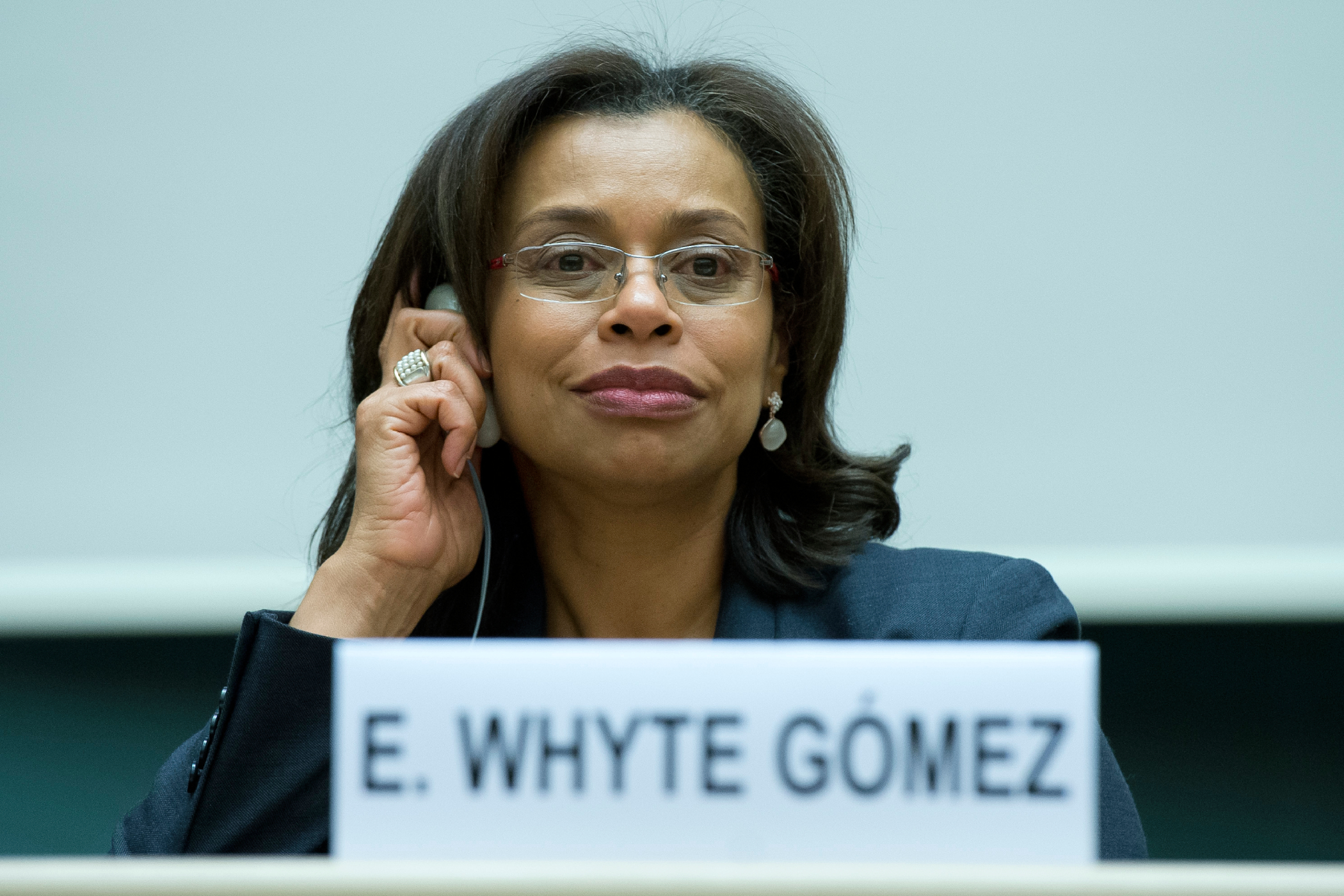June 6, 2023
Princeton University's Program on Science and Global Security (SGS) together with the Princeton School of Public and International Affairs (SPIA) hosted on 11 April 2023 a public lecture by Amb. Elayne Whyte “The Power of the Powerless: Reflections on Practicing Diplomacy in the Early 21st Century”.
In her lecture, Amb. Whyte explored how diplomats, activists, and leaders from countries not usually considered as power players in a world dominated by military, economic and political “great powers” have greatly contributed to forging the ideas that now shape our lives, from the creation of the United Nations Charter in 1945 to the successful struggle in 2017 to achieve the Treaty on the Prohibition of Nuclear Weapons. She explained how by acting together the powerless in today’s world order have developed ideas and practices of a diplomacy for humanity which may offer a path forward at a time of overlapping global crises and multiple social, environmental, and technological transitions with deep institutional and political implications that need solutions beyond nation-states.
Amb. Whyte focused on the negotiations she chaired between 124 states of the Treaty on the Prohibition of Nuclear Weapons. She highlighted how this process represented a diversification of agency and leadership in the struggle for nuclear disarmament, and a deliberate shift in emphasis from state security towards concern for all humanity as part of a broader focus in multilateral negotiation processes on the existential concerns of humanity. She emphasized the importance of how the powerless combined new out-of-the-box thinking with ethical strength to craft a new strategy, leadership by civil society and governments, and the role of experienced diplomats using the legitimacy and convening force of the United Nations, under a General Assembly mandate, to achieve the Treaty.
Elayne G. Whyte is the former Vice-Minister of Foreign Affairs of Costa Rica and was the first woman, and the first person of African descent, to hold this office. She was the Ambassador and Permanent Representative of Costa Rica to the United Nations and she was President of the UN Conference involving 124 states that negotiated and adopted the Treaty on the Prohibition of Nuclear Weapons, which entered into force in 2021. She has served in leadership positions in security and disarmament treaty-regimes and has led several global negotiation processes to fill legal or cooperation gaps in the fields of human rights and global health.
